Every business wants to grow, for that they need a robust information and data structure which can be used by their employees and customers. Businesses need to ensure user satisfaction by offering them a great digital ecosystem which enhances the digital user experience. Businesses use various software and applications to improve their processes, operational efficiency and to drive productivity and performance. That is not all, businesses always have several challenges, the tough competition, the ever increasing customer demands, the low performing teams and employees, and what not. When it comes to custom software development, businesses chose the solution which matches their technical requirements and also fits in their budgetary limitations. Businesses in Dubai, Sharjah, Abu Dhabi and other parts of UAE are well-aware of the impact of digital tools, software and mobile apps. However, most often businesses do not realize that they don’t need to acquire different applications for different platforms (which is very expensive), in fact they can have a completely customized software using the technique of cross-platform software development, which is most cost-effective way of launching your software or app to multiple platforms.
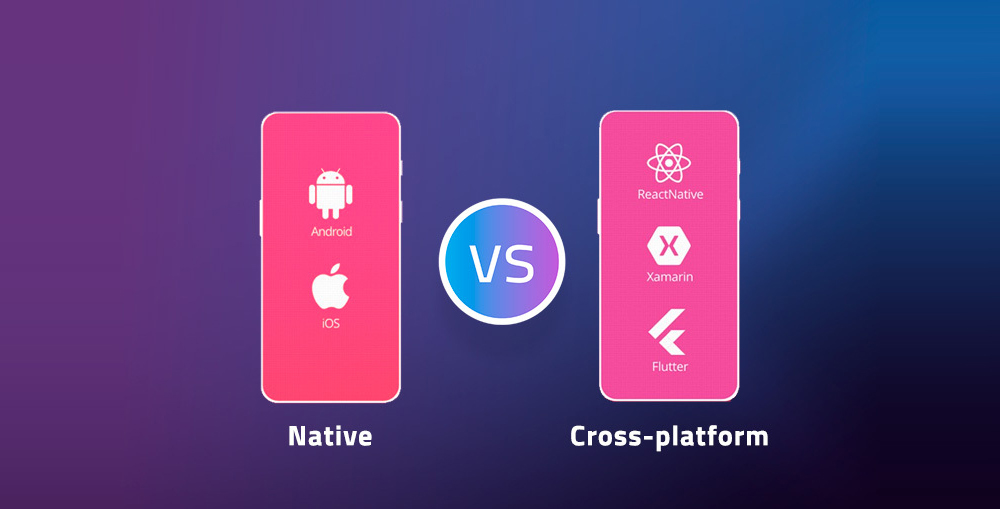
What is React Native?
The React Native is a JavaScript based framework and library to develop the frontend UI for software and applications. It is an open-source platform, which means it is free to use and it is developed by Meta, formally known as Facebook. The reason why it is so popular is that it enable developers to utilize native capabilities of the platform and develop cross-platform software applications while utilizing only React framework. This simplifies the software development process and enable developers to develop excellent applications for multiple platforms with very less time and efforts. Furthermore the software developers can easily utilize their JavaScript skills to work on React Native framework which minuses the learning curve. The React JS and React Native often confused with one another, however, both are different. The React JS is majorly used for developing websites and web-apps however, the React Native is a cross-platform software development framework which is built on top of React JS and it allow developers to develop applications for Android, iOS, MAC OS, Windows and a few other platforms. Furthermore the React Native can also be utilized for both frontend and backend development which make it superior from other counterparts.
See Also: Customer Software Development: Why React JS is The Future of Frontend Development
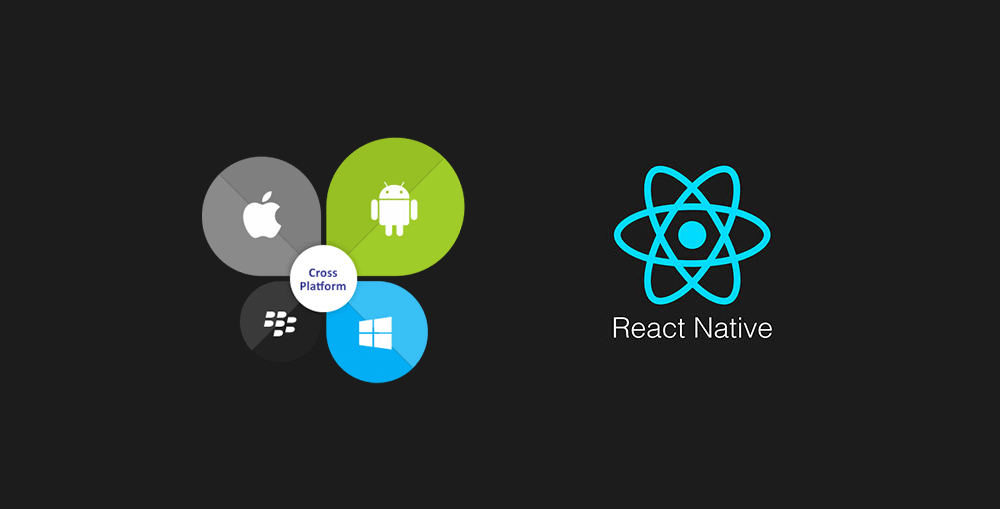
What is Cross-Platform App Development?
The cross-platform app development is simply a method of providing your software, mobile application or web-apps to a diverse range of audience who are using multiple different platforms. This means all users from different platform would be needing same user experience, features, UI, etc. The biggest challenge of cross-platform software development is that a business would be needing multiple different teams to work on different platforms. Here are some cross-platform development tools:
Popular cross-platform development tools:
- JavaScript: For website and web-app development
- Kotlin: For Android app development
- Swift: For Apple iOS app development
- .NET: For Windows software and tools development
If you want to make your software and app available for all above platforms, then you will be needing at least 4 different teams to work on your single app/software. This could be very expensive, moreover it is difficult to manage multiple teams working on a same software or app. Furthermore each platform team will have different costing mechanisms, hence it would be difficult to meet release date. Later on, when you will be needing any maintenance, update or upgrade, your efforts and expensive would be multiplied to the number of platforms you are working at. That is where the React Native comes to play, it allow businesses to hire a single team and make cross-platform software development seamless and very cost-effective. The maintenance/updates are also easier and very less expensive.
Lear More: What Is Cross-Platform App Development?

What are the Benefits of Using React Native Apps for Cross Platform Development?
The React Native is rapidly growing on Stack Overflow and GitHub. It is widely adopted by businesses and organizations not only in UAE but all across the world. This also means that a developer can easily find community support and a huge number of ready-made plugins and scripts all over the internet which help developer speeding up the cross-platform software development projects. Here are some key benefits of using React Native apps and cross-platform software development for your business:
Quicker Development Process
Since you don’t require to have different teams working on your software for different platforms and only a single team can do that, the development cycle becomes shorter which also enables you to launch your apps quickly. Furthermore the React Native offers several features which help the programmers and developers to quickly develop their applications, and also it enables quick debugging and testing which makes development process much quicker than any other available framework. Moreover the code is also useable at several platforms which make development fast, it also reduce efforts to write code for multiple platforms and making changes to it. That is why the react native can effectively reduce the time and efforts of developing cross platform software.
See Also: How to Choose the Right Software Development Vendor for Your Business
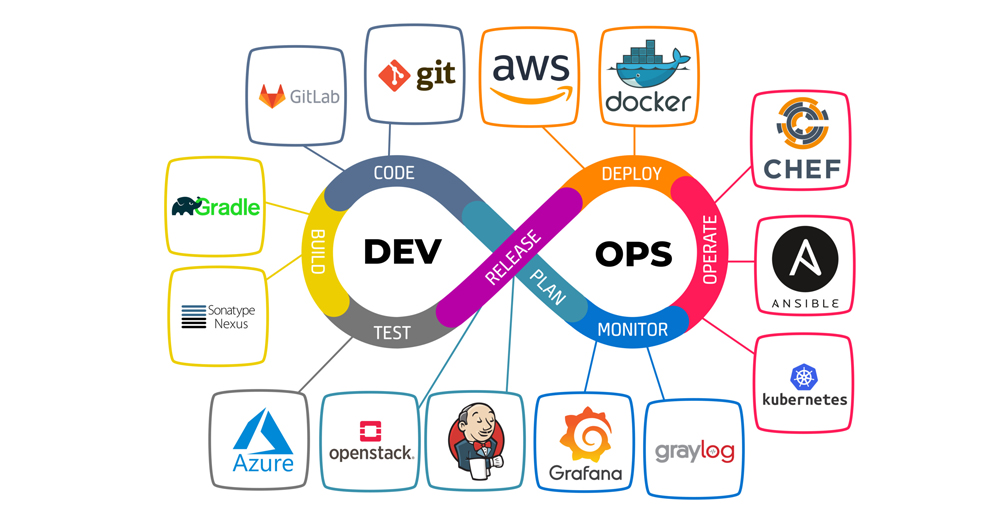
Reduce the Cost of Cross Platform Software Development
The react native can greatly reduce the cost of your cross platform software development projects. Thanks to its ability to provide a reusable and compatible code for multiple platforms and reducing the efforts the time required to develop such mobile apps, web-apps and software has become very low. This also help reducing the cost. As less time and efforts are needed to develop a cross platform software, the cost is also low and since only one technology stack is required for the entire team, it is easier to find the skilled teams or vendors who can develop such software, apps and tools. Here in Dubai and all around the UAE the software development agencies, such as RSI Concepts and many others are offering highly cost-efficient software development services, which also impact the cost of your software development and help business get a highly cost-effective solution.

Support Multiple Platforms
There is a common impression among businesses and non-coders, that the react native is only meant to be used for Android and iOS app development. However, that is not true at all. The react native is a very useful platform with a wider range of compatibility. Businesses can develop applications and software which can be offered on Android, iOS, Windows, MAC OS, Websites and a few more. There is a huge online community support for the React Native platform and above all it is rapidly evolving and growing adding support for newer platforms and technologies. This means businesses and developers both can expect a sharp rise in compatibility and efficacy of the react native and its expansion to various other platforms. That is what makes react native much more superior than other such frameworks.
See Also: The Key Elements of Efficient Software Development Project Management

Native-like Experience and Performance
When it comes to platforms like react native, the biggest concern of the businesses is experience and performance. That was also true, but a few years back, not now. Now a days, there are so many advancements made to the react native core, and furthermore the Meta (Formally known as Facebook) has introduced a new JavaScript engine, Hermes, which enables static optimization and help reducing the app size. Furthermore the React Native can also render components to the GPU which is achieved by eliminating the gap between the JavaScript and the native components and results in high-performing apps. This enables developers to offer a native-like experience and performance by simply using react native and its advanced components.
See Also: Guide to Custom Software Development
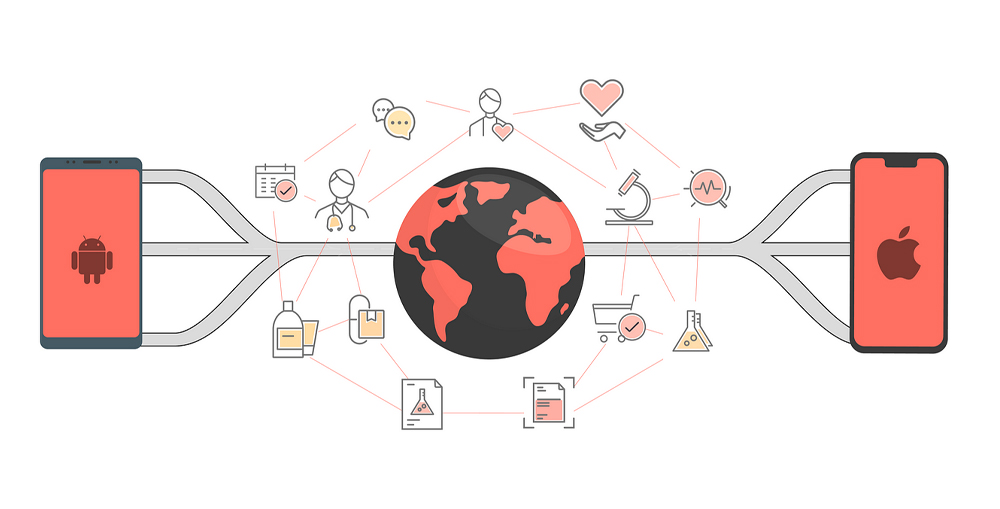
Quick Debugging and Changes
One of the biggest advantage of the React Native is its features like hot-reloading, live-reloading and fast refresh. When making changes to the application’s source code or debugging it the developers will have to recompile the application, however, with the react native this isn’t require anymore. It means that the developers can see their changes immediately, almost in real-time without the need to recompile the entire application, which is a time consuming tasks. That is why the developers prefer to use react native, as it helps them make changes and refine their work without any extra effort or repeated tasks. Furthermore the new features of the react native framework are extremely useful in debugging typos, syntax and other common errors in the code, which makes it more productive and ideal framework for the agile development teams.
See Also: Common Mistakes to Avoid in Custom Software Development Projects

What are the Drawbacks of Using React Native for Cross Platform Software Development?
The React Native is one of the best framework available to this day for cross platform software and apps development. However, same like other technologies, it also has some drawbacks, although these drawbacks usually won’t impact a business, but in certain and very few number of scenarios these drawbacks could become problematic. Here are some drawbacks of using React Native for cross platform apps and software development:
- Unlike native technologies such as Kotlin or Swift the React Native is based on JavaScript which is a dynamically-typed programming language. This requires developers to follow certain standards and rules in order to avoid bugs form the apps.
- There are certain native modules which are not available in React Native, especially those are related to interacting with device’s hardware, hence when dealing with such functionalities the developers must have to insert native codes, which could also affect behavior and appearance.
- When using a framework like react native for cross platform software development, the developers can never achieve the level of performance and integration which can be achieved using the native codes and APIs.
- The operating systems of different platforms keep updating very frequently. However, the react native or any other cross platform app development framework is slow on adopting to new changes and introducing new features which are instantly available for the native apps.
See Also: Step-by-step Guide to Develop Custom Enterprise Software
There is a clear difference between the native app development and cross platform software development. However, frameworks like React Native are rapidly bridging the gap between these two. The modern versions of react native have already minimized a lot of problems, which makes it ideal for more than 90% of the businesses, there are only a certain sectors or businesses who still need to build native apps because they need sophisticated features and intensive hardware integration with their apps. Otherwise the react native is best for cross platform software development.
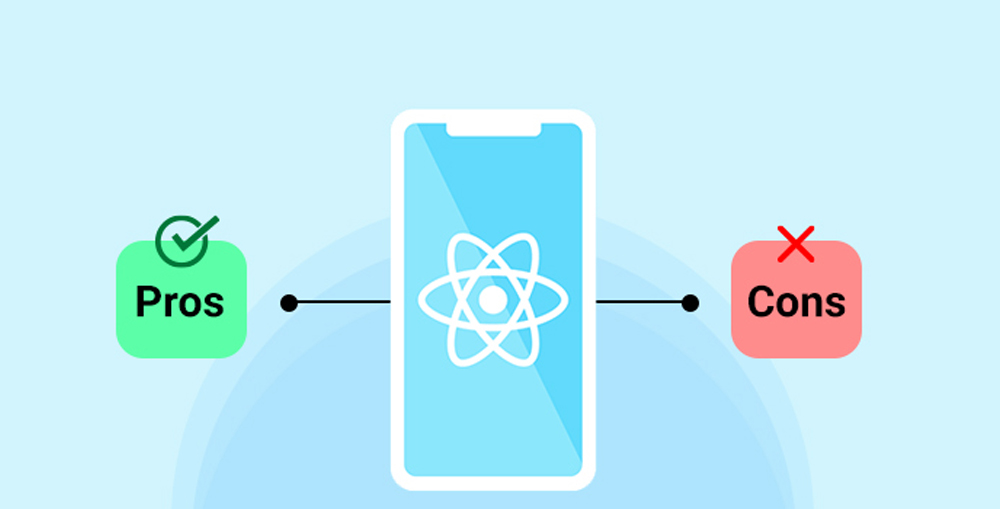
Conclusion
When it comes to mobile app development or customized software tools, the first thing businesses should consider is their needs. Both react native and the native app development has its own advantages and drawbacks. However, cross platform software development can significantly reduce your cost, efforts and time of development which is why most businesses are preferring it. The react native is also preferred choice of software developers as it is convenient, easy to use, debug, and it offers a variety of features which enable them to add advanced features to their mobile apps, and software tools. Furthermore the react native offers almost native like performance and experience. The developers can reuse the code, they can easily debug it and update it, and the overall efforts and development time can be greatly reduced. The react native framework is rapidly gaining popularity all around the world, the Meta is also introducing new features to make it better and the community support is also growing. All these are signs of a very bright future for React Native and cross platform software development. In this blog we tried to cover everything important about React Native and cross platform software development. This blog will give you a better understanding of cross platform and native apps. If you want to learn more or if you want our help to develop a native or cross platform app, please feel free to contact us through our Contact Us page or leave a comment in the comment box below and someone will get in touch with you soon.
See Also: How to Develop a Custom Software in Dubai?